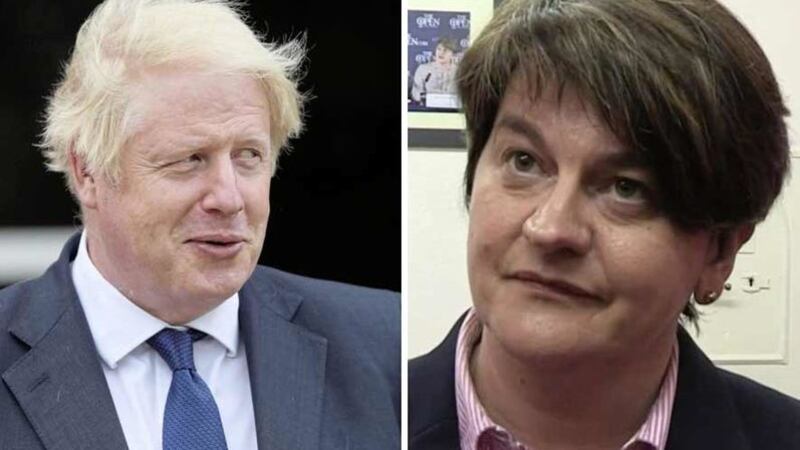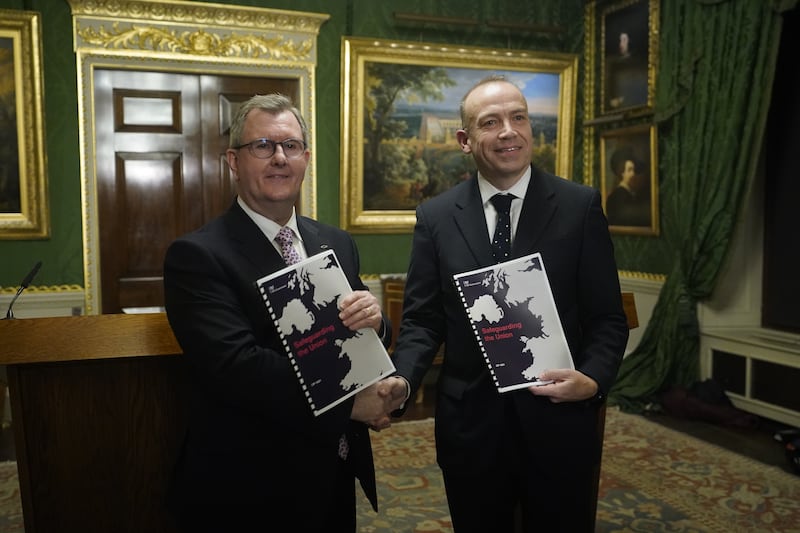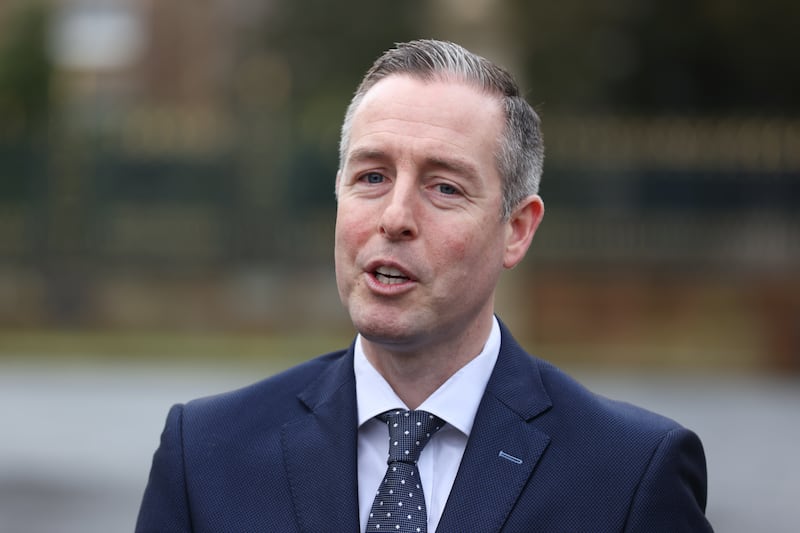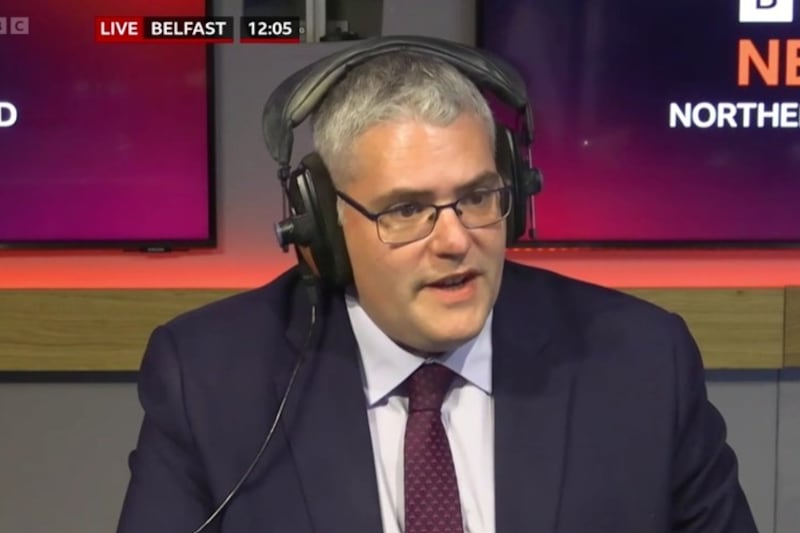UNIONISM has traditionally looked to London for reassurance and support for its cause and more often than not found it there – in rhetoric at least. However, this week commentary emanating from the UK capital highlights a growing divergence between former allies.
The narrative about the north “heading for the exit door” is nothing new – it’s been something nationalists have been arguing increasingly since the 2016 EU referendum. But when it comes from George Osborne, who less than five years ago was a leading figure in the Conservative and Unionist Party, its significance is amplified greatly. Likewise, an article in the Financial Times by Robert Shrimsley, the paper’s grandly titled UK chief political commentator and UK editor-at-large.
The former chancellor cited “short-sighted” Northern Irish unionists, who he described as “unbelievably stupid” for putting the kibosh on Theresa May’s deal in December 2017. The FT commentator is arguably less circumspect, labelling the DUP “nationalism’s secret weapon” and describing the party’s approach to the Brexit process as “among the most consistently witless in recent politics”.
It’s far a cry from June 2017 and the hubris in the aftermath of the Westminster election when the DUP were ‘kingmakers’ wielding power greatly disproportionate to its then ten MPs.
But according to John Stevens, a former pro-EU Conservative MEP who was prepared to fund unionist opposition to Ian Paisley in North Antrim had the 2018 recall petition forced a by-election, the DUP and other establishment unionists have always been too trusting of English Tories.
“The Conservative Party and its leadership have had contempt for unionism in general and the DUP in particular for a very long time, and they felt perfectly happy leading them up the garden path,” he told The Irish News.
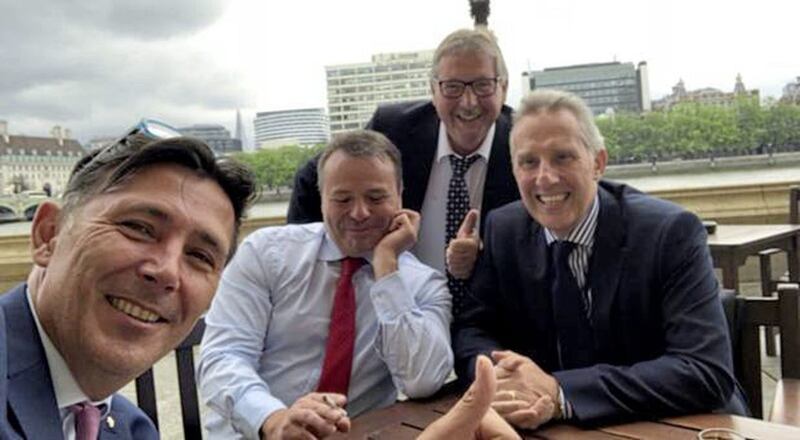
“The DUP was far too trusting of the promises that were given because they had this fundamental idea that they were dependent on English Conservatism for their survival, which is not true.”
Mr Stevens says the DUP’s pre-referendum support for Brexit was to “garner a cheap political success without having to pay a price for it” – a stance he compares to that of British Prime Minister Boris Johnson, who he says is “not a fanatical leaver - he was just fanatical about becoming prime minister”.
He believes David Cameron assured the DUP that Remain would win the referendum and the party felt it could campaign against the EU without any significant consequences.
“After the referendum they were trapped by their own position but that’s the history of Ireland – people are always trapped by what they did before,” he says.
Academic Feargal Cochrane, author of ‘Breaking Peace: Brexit and Northern Ireland’, says the DUP were “consistently mistaken about their leverage”.
“When everything’s going well and you don’t have a pressure point then there’s a false sense of security and it’s relatively easy for unionists to think they’re valued,” he says.
“But when it came to Brexit, getting Brexit done was the priority and saving the union was secondary – the DUP suffered as a consequence of that.”
Mr Cochrane too points to the “missed opportunity that was Theresa May’s proposed withdrawal agreement that would’ve ensured a “Brexit for the UK as a whole”.
“They are in so many ways the authors of their own misfortune, with DUP ministers now having to erect border checks at ports,” he says.
Ian Paisley’s toe-curling appeal to the Tory benches last week typified the DUP’s growing alienation. Like a spurned lover, the North Antrim MP asked: "What did we do to members on those benches over there to be screwed over by this protocol?”
The answer is both simple and complex. On one hand his party was too eager to get into bed with English Tories who had a sole aim – get out of the EU. But long before Mr Paisley and Sammy Wilson were lunching on the Westminster roof terrace with ‘Brexit bad boys’ Arron Banks and Andy Wigmore, the DUP had embarked on its own misadventure by consistently adopting an anti-EU message.
Initially based on its founder and former leader’s belief that the EU was a Papal conspiracy, the stance was later grounded on the notion that Brussels was overly bureaucratic and posed a threat to British sovereignty, even though being part of the world’s biggest single market along with membership of the Common Agricultural Policy brought a degree of affluence to a region that was economically peripheral.
The articles from London’s metropolitan elite that this week generated so much traction on this side of the Irish Sea are symptomatic of the messy separation of an increasingly self-serving English Conservative Party from a marginal former political ally that has served its purpose.
While the Tories and the DUP may swear loyalty to the same flag, they do not share the same world view. The former’s ideology is founded in free market economics with a smattering of jingoism, while DUP policy has traditionally been an unlikely hybrid of religious fundamentalism, left-leaning populism and loyalty to the British crown. It was bound to end in tears.
